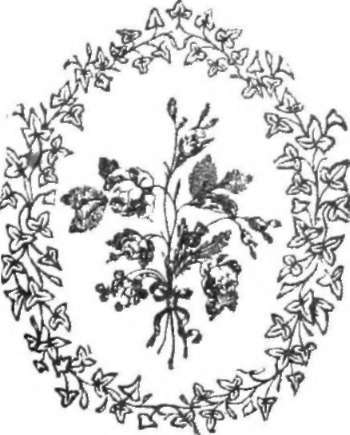Introduction
Description
This section is from the book "Garden Flowers". Also available from Amazon: Garden Flowers (1857 ).
Introduction
Flowers, in whatever point of view we regard them, are replete with interest, and form a source of gratification and attraction to all classes of mankind. We believe that there is no human heart, unless it be debased below the ordinary level of humanity, that does not, in one way or another, feel the sweet influence of flowers, at least in some degree. Scientific minds find in the investigation of their wonderful structure and qualities a study of the most engrossing interest. The Painter's eye and taste are gratified by the gorgeous colouring which they diffuse over the landscape in lavish profusion. The Poet's fancy and imagination are charmed and quickened into activity by the pleasing associations and the endless Variety of ideas to which they give rise; whilst the lovers of nature generally, and the unlettered, unimaginative sons of toil, are gladdened by their presence and their sweet perfume., To those who habitually glide from the contemplation of Nature up to Nature's God, flowers often possess a double interest and charm.
Flowers are a distinct evidence that God did not create man only to toil, but also to derive joy and gladness from the pleasant influences around him. They also suggest to the mind a rich variety of spiritual similes and associations, which tend to increase our love for, and our trust in Him who so carefully clothes the lilies of the field, and gently rebukes our want of faith, while at the same time he encourages us, by pointing to them, and asking the question, " Are ye not much better than they?"
Flowers are sometimes beautifully alluded to in Scripture, as, indeed, are all those objects of Nature which are adapted to illustrate the character or the works of Him who is styled the Rose of Sharon, the Lily of the Valley.
Perhaps the affectionate regard which man bestows on flowers has arisen partly from a feeling of gratitude for the intense delight they are the means of conveying to children. Who has not observed the gladsome eagerness with which the little ones rush forth up the sunny lawn and fling themselves, as if into their native element, among glowing beds of primroses, violets, and daisies ? To weave garlands and deck themselves in brilliant wreaths, seems to be almost the first and the highest joy of childhood; and so universal is tins love in children, that one could almost fancy that flowers were created for their special enjoyment. When the stern hand of time has rubbed the pristine freshness off almost all the pleasures of mankind, and when the cares of life have rendered the heart in a great degree callous to the influence of childhood's joys, thousands of the human family, we believe, revert with much of their former zest to the study and the cultivation of flowers, and find in their society a pure, intense delight, which seems to revive the feelings of former years.
The little bouquet which we now present to our readers has been culled, almost at random, from the rich parterres of Flora's boundless and beautiful gardens. May its fragrance carry the reader back to the days of childhood, and cause him to sing with the poet,—
O precious days! O happy hours!
How niem'ry backward lingers, To pluck again the dewy flowers,
With childhood's rosy fingers!
Bind up thy thoughts as thou wouldst bind thy flowers;
Weed them and they shall brighten thy lone hours.

Continue to:
